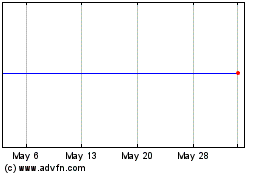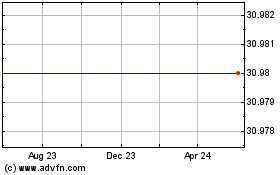2nd UPDATE: Lilly, Amylin, Alkermes Diabetes Drug Fails Comparison
March 03 2011 - 12:57PM
Dow Jones News
A diabetes drug taken weekly and being developed by Eli Lilly
& Co. (LLY), Amylin Pharmaceuticals Inc. (AMLN) and Alkermes
Inc. (ALKS) suffered another setback as it failed to prove as
effective as a different once-daily treatment.
The drug, called Bydureon, failed to reduce blood-sugar levels
at its maximum-approved dose as well as Victoza, made by Novo
Nordisk A/S (NVO, NOVO-B.KO), missing the study's primary goal of
"non-inferiority."
Victoza, already on the market, has benefited as Bydureon has
had multiple regulatory setbacks. Bydureon is a long-acting version
of Byetta, a twice daily drug from Lilly and Amylin that was
approved in 2005 and has been losing market share to Victoza's
introduction last year.
The news sent shares of Amylin down 22.65% to $11.61, while
Alkermes lost 12% to $12.40. Lilly rose 11 cents to $34.39; because
of its larger size, Lilly feels the impact from the setback less.
American depositary shares of Novo Nordisk recently rose 2.6% to
$127.83 after previously hitting a new all-time high of $128.95
The class of drugs, similar to a hormone in the digestive track
known as GLP-1, boost the production of insulin in order to
regulate blood-sugar levels.
In the study, which tested Bydureon and Victoza over 26 weeks in
about 900 patients, Bydureon was less effective at its maximum
approved dose in reducing blood sugar levels than Victoza. Bydureon
patients showed a 1.3 percentage point reduction in a blood-sugar
benchmark known as HbA1c, compared to a drop of 1.5 percentage
points for Victoza.
Victoza patients reported more frequent gastrointestinal side
effects, but injection-site reactions occurred more often in
Bydureon patients.
Citigroup analyst Yaron Werber noted that the data likely won't
effect the potential approval of Bydureon, but said the data are a
"major win" for Novo Nordisk.
"From a marketing prospective, this is a setback as this study
was intended to provide a knockout punch against Victoza as
Bydureon is already more convenient and similar to better efficacy
would have been a major advantage," he wrote in a note to
clients.
The FDA declined to approve Bydureon early last year and made
the same move in October, asking for more clinical data. The
companies expect to submit that data by year-end and have projected
a six-month review. Bydureon was originally submitted for approval
in May of 2009.
The initial FDA delays came from requests on details that didn't
require additional studies. But the latest rejection requested a QT
study, which aims to determine potential heart arrhythmia caused by
a drug. That study was started last month.
Deutsche Bank analyst Robyn Karnauskas said the results of the
QT study will likely be more important than Thursday's data,
because the QT data will determine if the drug actually makes it to
the market.
She stressed that dosing convenience of Bydureon -- weekly
compared to daily Victoza -- will be the biggest sales driver if it
is approved. She notes that oral drugs are usually used prior to
injectable for this reason. She models an 85% probability that peak
sales will hit $2.5 billion by 2020.
The success of Bydureon is key to the future of Amylin, which
hasn't reported a profit since going public in 1992. The drug would
be a positive development for Lilly, a company looking for new
drugs to offset looming generic competition to its top
products.
Under their partnership, Amylin and Lilly share U.S. operating
profits and costs from Bydureon equally. Alkermes' drug-delivery
technology makes the drug longer-acting and that company will
collect an 8% royalty on global sales and pay no marketing
costs.
A previous study of Victoza showed that it improved blood sugar
control in patients that switched from Byetta. The drug has been
steadily chipping away at Byetta's position as the sole drug in the
class since its launch in 2005.
Barclays Capital reported last month that Victoza had about 40%
share of total U.S. prescriptions in the class. Global sales of
Byetta dropped 11% to $710 million last year.
The market for such drugs is likely to get more crowded in
coming years as multiple drug makers are developing similar
treatments.
-By Thomas Gryta, Dow Jones Newswires; 212-416-2169;
thomas.gryta@dowjones.com
Amylin Pharmaceuticals, Inc. (MM) (NASDAQ:AMLN)
Historical Stock Chart
From Jun 2024 to Jul 2024

Amylin Pharmaceuticals, Inc. (MM) (NASDAQ:AMLN)
Historical Stock Chart
From Jul 2023 to Jul 2024
